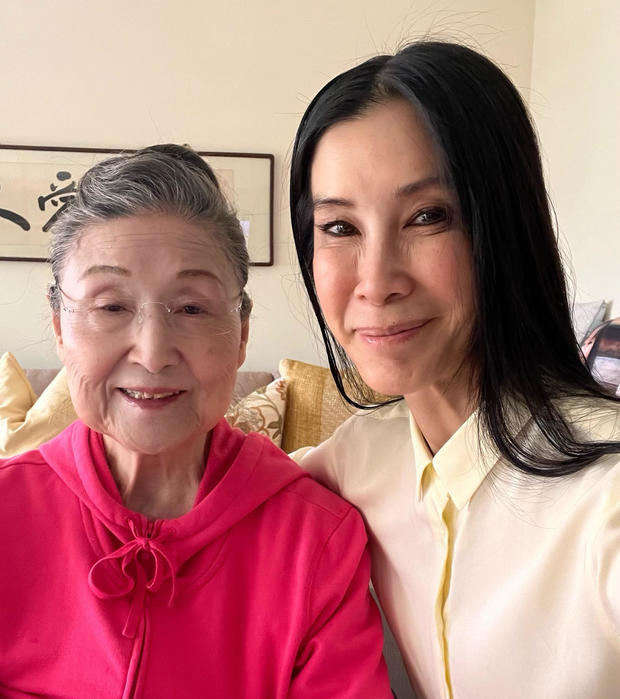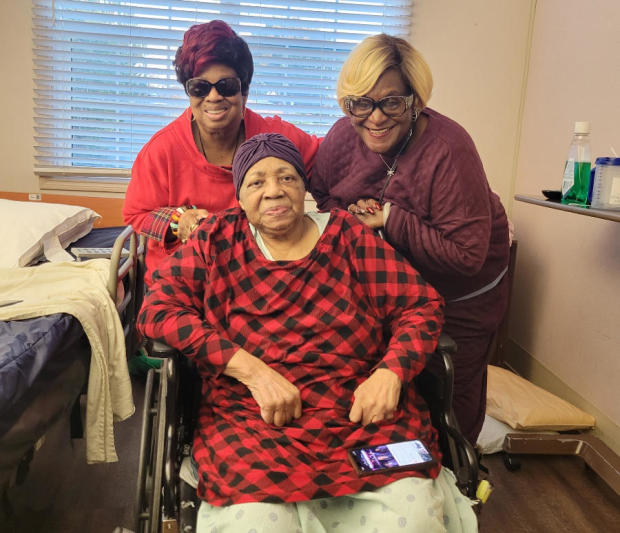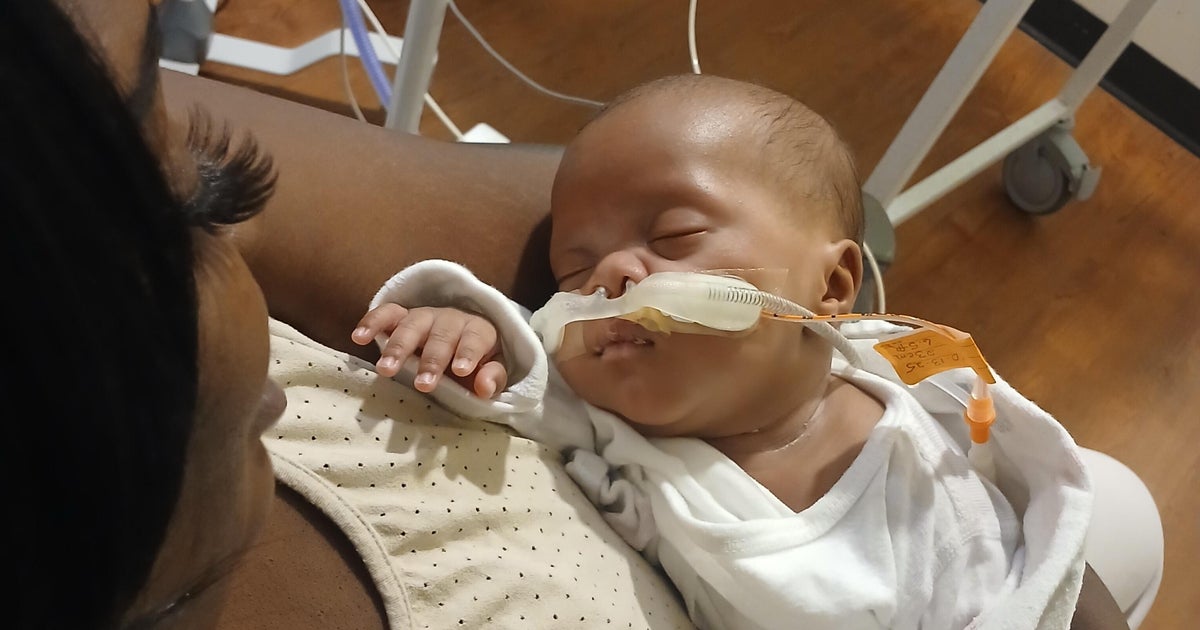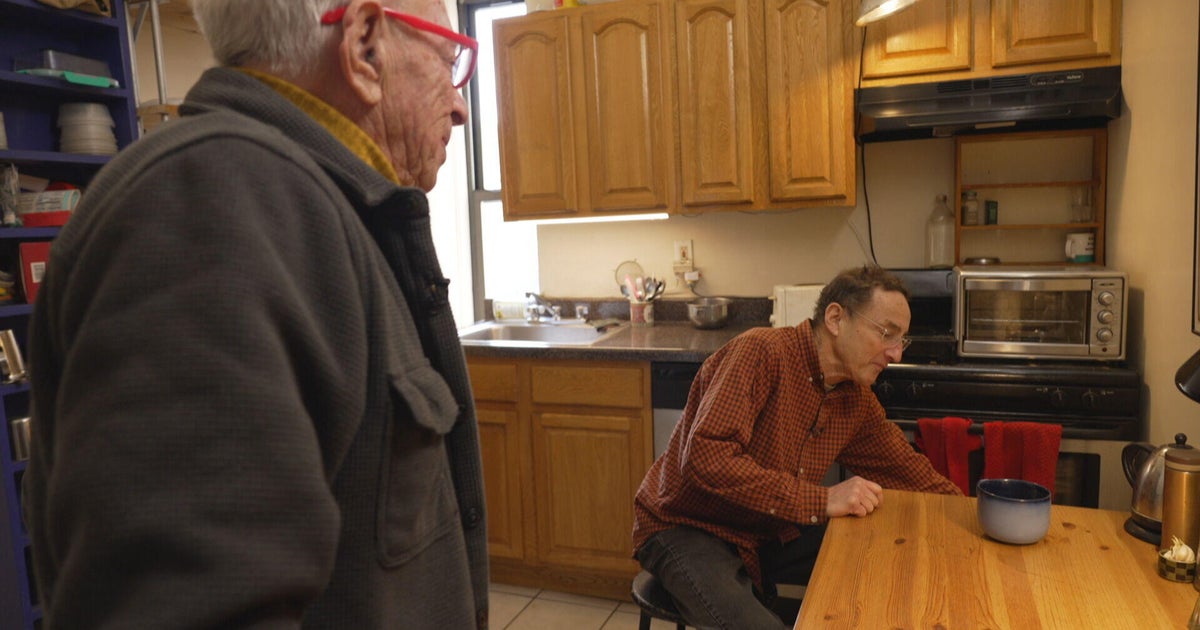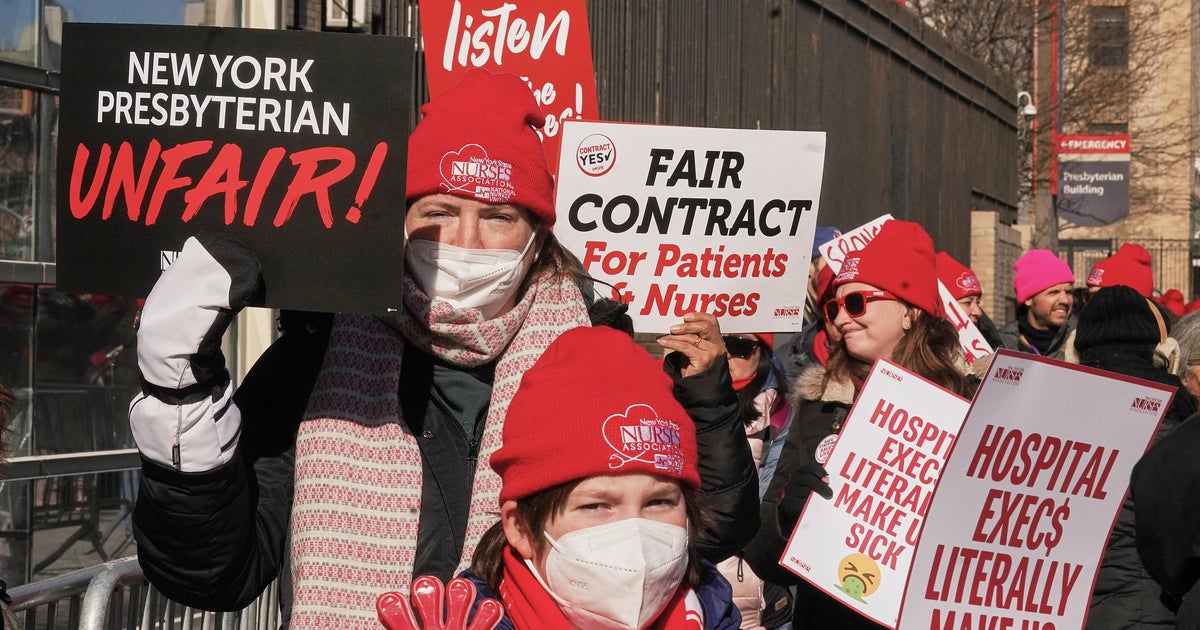As investors pour in, for-profit nursing homes leave some seniors in need
Based on her medical condition, Grace Song had been labeled a fall risk by the Southern California nursing home where the 92-year-old spent a month earlier this year. So it was a surprise to her family when they learned she was left alone in the bathroom, fell, and was rushed to the emergency room.
"This is where you feel, how do I get to be so helpless?" Song told her daughter-in-law Lisa Ling, who is a CBS News contributor. Ling began recording her mother-in-law on her iPhone following the incident and Song's return to the nursing home, a for-profit skilled nursing facility called Berkley East Healthcare Center. Ling's personal experience informed a parallel effort by CBS News to understand the changing nature of nursing home ownership.
Berkley East is one of the more than 70% of the roughly 15,000 U.S. nursing homes now run by companies seeking to make a profit in a field beset by challenges. A CBS News investigation found Song's experience was consistent with allegations that the facility had faced a pattern of neglect. And it matched an industry-wide trend toward increasingly complex ownership arrangements that consumer advocates say are endangering fragile patients.
"The vast majority of quality problems in the U.S. are centered in for-profit nursing homes," said Harvard professor David Grabowski, who told CBS News the ownership structures of for-profits have become more complicated, as investment from private equity firms and real estate companies have poured in.
Most U.S. nursing homes rely on taxpayer money from Medicare and Medicaid — money Grabowski said is becoming more difficult to track.
"We're kind of flying blind with respect to these nursing homes," he said. "We really don't know how they're using public dollars and whether they're going into direct resident care."
There is mounting evidence patients are paying the price. A study released by the federal government in November shows these for-profit facilities tend to have lower quality ratings, fewer registered nurses, and more safety violations.
The study was released in tandem last November with a new regulation by the Biden administration requiring facilities to disclose more information about their management. That rule, along with new minimum staffing requirements scheduled to take effect in June, are central to the administration's efforts to hold the industry accountable in the wake of the pandemic, where more than 200,000 nursing home residents and staff died due to COVID.
In a statement to CBS News, the American Healthcare Association, a nursing home industry lobbying group, called the federal staffing mandate "unrealistic." It said while it supports financial transparency and accountability, those matters are "a distraction" from larger issues it says most nursing homes are facing, including chronic government underfunding and worker shortages.
In an August 2023 report, the group said 24% of nursing facilities were forced to close a wing, unit, or floor due to labor shortages.
"The reality is that it is really challenging to run a nursing home, which is why we've seen thousands of closures, changes in ownership, and bankruptcies in recent years," the group wrote in its statement. "It's because as a country, we've failed to adequately support how we finance long term care."
In 2019, after carving off the facility's real estate holdings, the operations at Berkley East were taken over by a for-profit company called Aspen Skilled Healthcare, a mid-sized chain of more than two dozen nursing homes. Previously, the facility had been family-run and was operating at a loss.
When Song arrived at Berkley East in January, she described a facility that appeared short staffed. She said she struggled to get their attention, and medication she was told to take promptly at 8 a.m. routinely came hours late.
"So I was pushing the [buzzer], to find out what's going on," said Song, claiming some staff members told her she was being difficult. "When you go through all this stress, I'm just so deadly tired," she said.
Another patient, who shared a room with Song, told Ling she had soiled herself and the staffer who was supposed to change her had gone to lunch.
Staff and family members raise concerns
While Berkley East continued to operate at a loss, Aspen's facilities overall reported profits of more than $27 million, according to federal cost reports the company filed in 2022, the most recent year data is available.
Aspen Skilled Health Care declined to comment for this report.
Five current and former Berkley East employees told CBS News they believe patient care had suffered after Aspen took over. One nurse who worked at Berkley East for more than a decade alleged she was exposed to examples of what she called negligence "on a daily basis," including patients not receiving their medication on time.
"Labs weren't being reported in a timely manner," said the nurse, who asked to remain anonymous to protect future job prospects. "When we tried to call upper management, they wouldn't even pick up the phone or call us back. They would just leave us short on the floor."
She also alleges that during the pandemic, Aspen took steps to conceal staff shortages from the state health department by listing names of nurses who appeared not to be working there on internal staff reports.
"These nurses were nowhere to be found in the system, weren't even licensed, weren't even certified," she said.
Asked to respond to questions about these claims, a spokesperson for the company declined to comment.
One woman interviewed by CBS News shared pictures of wounds she said her disabled husband received after he was left unattended and fell out of a wheelchair, striking his head. Last August, federal inspectors placed Berkley East under immediate jeopardy status, after finding that staff failed to administer "lifesaving medication" to a patient with low blood sugar levels, who then had to be hospitalized.
By April, the facility had tallied so many "serious quality issues" that federal regulators say it's a candidate for its Special Focus Facility program aimed at nursing homes that need special oversight "in order to protect and improve residents' health and safety."
Since Aspen took over, the Centers for Medicaid and Medicare Services has dropped the facility from a four-star overall rating to one star.
CBS News has learned the company has since replaced its managers at Berkley East, and some employees say they have seen some improvement. In 2022 data, the facility reported staffing levels that exceed state and federal requirements, and according to a post online, last week hosted a job fair for nurses.
"What if it was your loved one?"
One of Aspen's more profitable facilities is Oakland Heights, where Ruby Frazier spent a month after a fall at home sent her to the hospital in November 2022. Frazier, who was 85 at the time, told family she struggled to get the attention of staff and her condition deteriorated quickly, according to her granddaughter, Maisha Morris, and daughter Yolanda Morris.
"My mom would push the button for help and they wouldn't acknowledge her," Yolanda Morris told Ling. "It's like they didn't even give a doggone."
Frazier, who was bed bound, developed what her medical records later concluded were bedsores. Her family says they insisted the facility call an ambulance when, on one visit, she began gasping for air. When Frazier arrived at the hospital, medical records show emergency room doctors diagnosed her with pneumonia and severe sepsis. She died six months later.
The Morrises have sued Aspen, alleging the company "knowingly and deliberately understaffed and underfunded Oakland Heights … to maximize profits at the expense of patient care." In a court filing, the company has denied all of their allegations.
Maisha Morris said if she were able to address the management at Aspen, she would ask them to put themselves in her shoes: "What if it was your loved one who wasn't being treated correctly, and they're calling and calling, and no one is responding?"
Financial maneuvers
Just how much money nursing homes re-invest in patient care can be hard to calculate. Federal cost reports show Aspen facilities used common accounting maneuvers in the industry called related party payments to move more than $25 million to subsidiaries controlled by Aspen. The company's financial records note the payments mostly cover administrative and general costs
In March, health care researchers from UCLA and Lehigh University found some nursing homes were extracting substantial profits by overcharging related parties for management fees and rent in particular.
"Nursing home owners are overcharging their own facilities for services," said Sam Brooks, a consumer advocate with the National Consumer Voice for Quality Long-Term Care. "They can then turn around and say, 'We don't have enough money to pay for staff,' when it's really hidden in these related parties."
Last year, New York Attorney General Letitia James filed a civil lawsuit against the owners, operators and landlords of four for-profit nursing homes, alleging they enriched themselves using "an elaborate network of related companies," diverting more than $83 million in Medicaid and Medicare funds away from resident care.
The American Health Association, the industry lobbying group, told CBS News related party payments are among "common business practices to help streamline services."
"Neither ownership nor the line items on a financial statement prove whether a nursing home is committed to its residents," the group wrote in a statement. "To truly transform long term care, we must focus on supportive solutions that invest in our seniors and caregivers."
Grabowski said the cost reports that nursing home facilities produce highlight the limits of the federal push for transparency, because they don't ultimately explain where taxpayer money is flowing.
"Does Aspen have particular investors? There's no ability to peel that back with the federal data," he said. "Basically we need to know for every nursing home in the country, how they're spending public dollars."
A doctor's view of a for-profit takeover
In 2016, Aspen took over a 300-bed nonprofit facility in Los Angeles's Boyle Heights neighborhood after the building was purchased by real estate investors, according to a source familiar with the arrangement.
For decades, the nursing home was a pillar of the Japanese American community, but Dr. Takeshi Matsumoto said that emotional connection was lost when Aspen took over the facility, which was renamed Kei-Ai Los Angeles Healthcare Center.
According to Matsumoto, a private physician who still sees some of his patients at Kei-Ai, while there wasn't a visible drop in staff when the for-profit company took over, there was a drop in quality.
"For the most part, I would say the care became suboptimal," he said. "Just taking care of some basic needs, like for example, taking care of resident's dentures. I've had numerous families complain that their parents' dentures were still caked with old food."
When the pandemic hit California, the facility became one of the deadliest in the state, after Matsumoto said Aspen opted into a program to receive state money in exchange for taking on COVID-infected patients.
He said existing Kei-Ai residents, some of them his longtime patients, weren't informed of the company's decision nor given the opportunity to move out of the facility and later died from the virus. According to federal data, there were more than 200 COVID deaths in the facility in 2021. (Kei-Ai wrote on its website that while the cumulative data may appear high, when the facility's size is considered, its COVID-19 statistics are in line with state averages.)
Matsumoto said he believes the company's apparent lack of communication with existing residents resulted in unnecessary deaths, and reflects how Aspen does business.
"They didn't really care about the fundamental rights of individuals to be informed if they're going to be placed in harm's way," he said.
